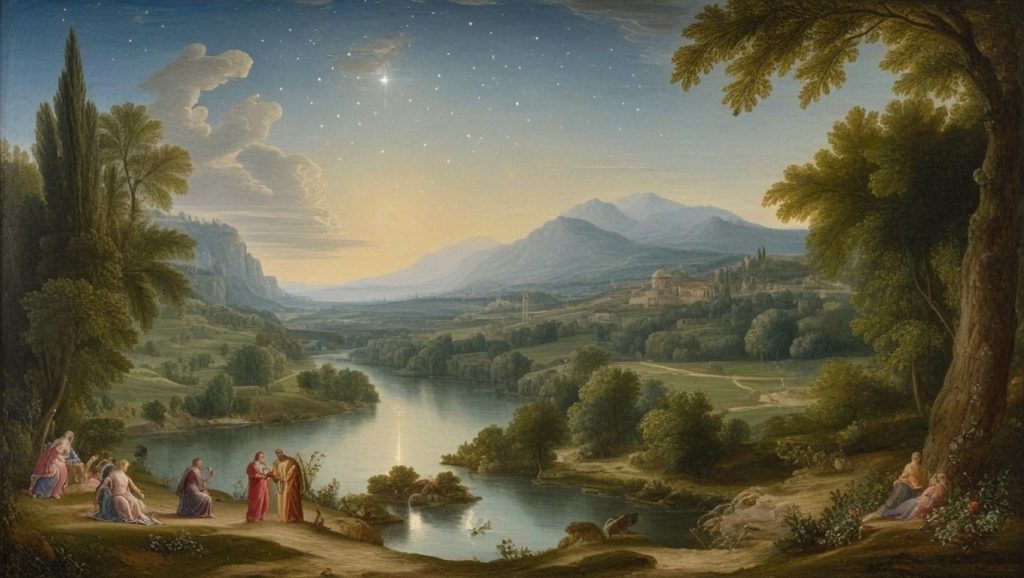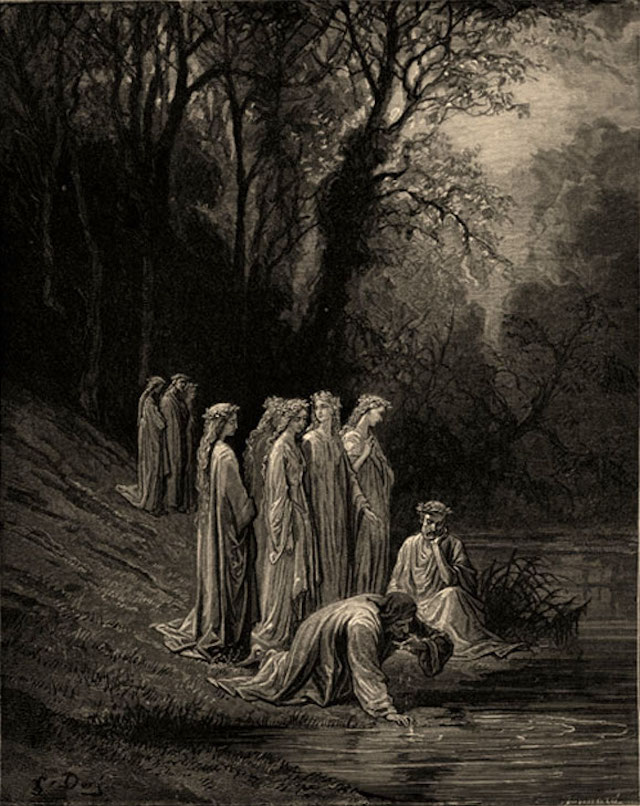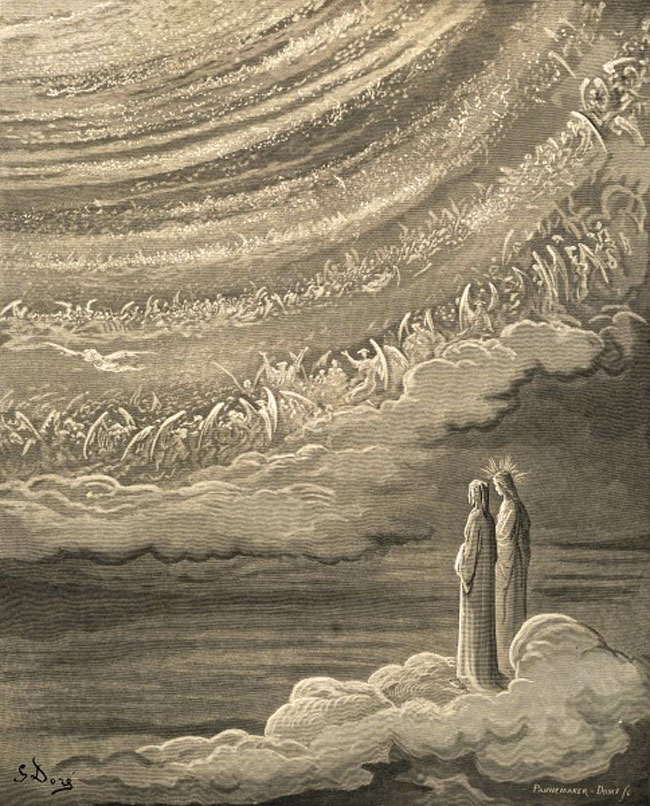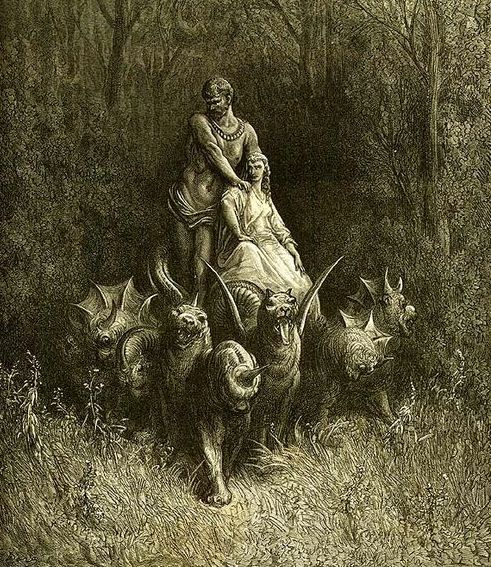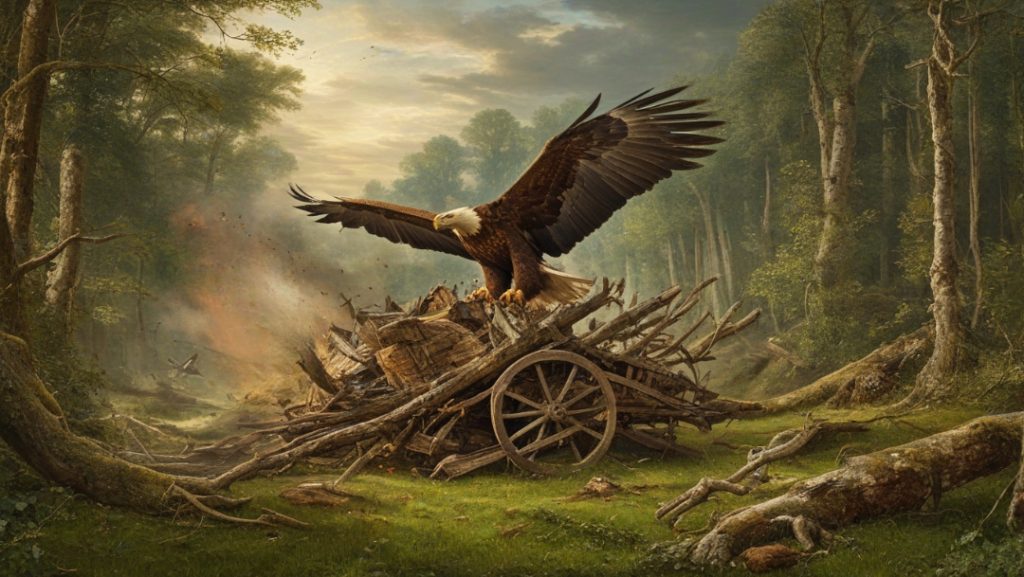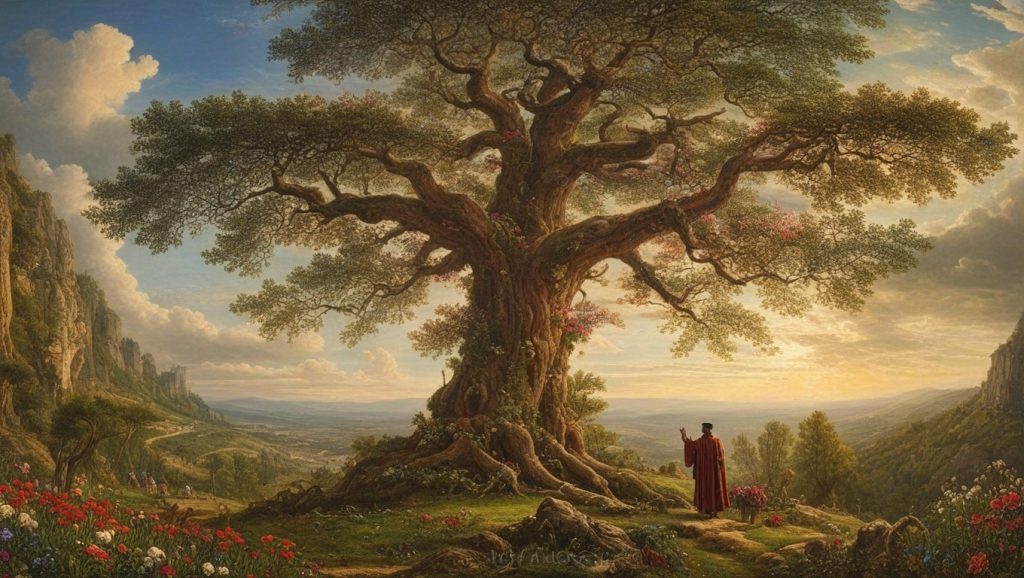
After the restoration of the soul and the first 65 cantos of the Comedy, one can take a long break and simply enjoy the fruits of the readings. The first main step is completed. And one’s life, apprehension, perception, experience, it all will have changed into a bigger picture with potentially infinite enrichment.
But,
the poem keeps moving almost instantly. The pageant starts turning bit for bit with the elders, the virtues, the griffin and the carro, and then starts moving towards the sun and towards the east. The mission is accomplished, and they are going “back” to the Heavens and the Light again.
And the Pilgrim, Stazio and Matelda follow the carro as well, meaning to some extent the new “triplet” of the transformed earthly life (Matelda), the rebirthed soul (Stazio), and the newly cleansed apprehension/consciousness with the Pilgrim. Rather than climbing upwards with the old triplet (Virgil, Stazio and Pilgrim), we are now strolling sideways with the new triplet instead.
And this goes on for the length of “three arrowshots”.
Then appears an image which is widely discussed with multiple efforts at interpretation. We will now make the case for a reading that stays close to Dante’s exact words, and seeks to avoid any internal contradictions, but differs from most of current scholarship.
What they encounter is a giant tree, which is withered and looks dead. There are no leaves and flowers on it, and the whole pageant is murmuring the word “Adamo” – Adam, the first human being.
The tree is enormously high and spreads wider out in its crown the higher it gets. And the common interpretations of this image is: The Tree of Knowledge of Good and Evil, a symbol of the Roman Empire and Authority, a representation of Divine Justice, or the Cross of Christ. Our reading of this is different: The Tree is a symbol of the relationship to God. It works both as the overall template for Human-Divine relationship (thus the murmuring of “Adamo”), and it also becomes the personal relationship to the Heavens within each of us, with its own nature for every soul.
The pageant then gives blessing to the griffin for not “tearing its beak into the wood, of the sweet taste, which would badly turn the belly”. Here again one might find multiple interpretations, but from the perspective of the Tree being the spiritual relationship to God itself, it could mean how Christ and the spiritual life (also as unity of spiritual/material) does not force anyone to the spiritual life, nor make it too obvious, as to remove the real choice for the soul, to turn towards it itself.
This would be a necessary mechanism considering the overall telos of the Creation, in the Divine Comedy: to have free willed spirits/souls, that voluntarily choose to turn towards and reflect God’s Glory, so the Glory can then say “Subsisto”, I exist. In a way the relationship is necessary for the fullness of being and the Love in a voluntary reflection. Thus any removal of this dynamic would disrupt the real functioning of the relationship itself. And this might be why the griffin says its first and only line in the poem: “Thus is conserved the seed of every just one”. Meaning: the full functioning of the soul and the relationship when aligned, is only conserved by preserving the turning as an act of exercising the Free Will. Without this, the Tree (as the relationship) cannot function properly.
Then the griffin pulls the “pole” of the carro (the orientation point of your soul) over to the Tree and attaches it. Meaning: the force of Christ (as unity) is pulling and connecting your soul to not God directly here, but to the relationship.
And with this ignition, the whole Tree comes to life. First it is swollen, and then in full renewal with colours and new leaves, blossoming in its nature, not yet in full red but more than in violet, where the branches before were bare.
So in this sense, there is a natural continuity from canto 31. The soul is restored, they turn toward the sun, and after some walking, they encounter the relationship itself, which is then revived, as the soul has now become purified and aligned. For the Pilgrim the journey from the dark forest has thus led to the rebirth of his soul, and encountering his own dead tree of relationship inside of himself. But through the new alignment, this relationship “wakes up” as an essential step before Paradiso. And in this way the passage also functions as a preparation for the third canticle, by setting up a new flowering dynamic with the Heavens, as the renewed and now blossoming Tree.



